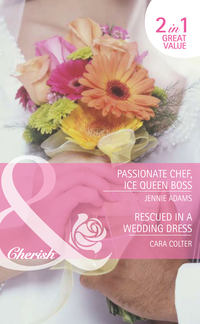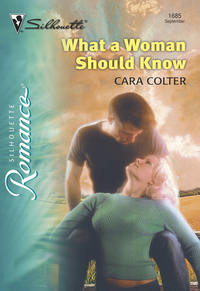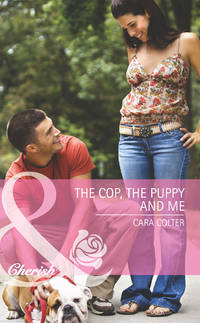
Полная версия
Truly Daddy
She actually liked the town of Eliza and had no wish to live anywhere else. She was able to do the ribbonsand-curls thing for Angelica. French braids were nothing to her. She could do amazing things with canned tuna and cornflakes.
He was thirty. Totally engrossed in his work. Marriage had never crossed his mind.
He was of these mountains. He understood them as much as any man ever would in all their lonely and harsh glory. The mysteries that remained called to him. They were magnificent mistresses and he had never needed another.
But Angelica needed something more.
A mommy.
A picture of coming home every day to Candy entered his mind. Everything in him rebelled against it. He couldn’t do it. Not even for love of Angelica.
“A nanny,” he said out loud, firmly, and sent a pleading look heavenward. “One small helper.” He snapped off the radio before Garth got to the part about the blessings hidden in unanswered prayers.
He had turned off the main highway and was only about ten minutes from Eliza when he heard the sound in the back seat. He wasn’t quite sure what it was. A breath. A whisper of clothing.
He was a man who relied on instinct far more than average men, and his hackles rose now on the back of his neck.
There was someone back there.
He knew it with such sudden force and certainty he wondered how he had not known it the whole time. But he did not let on that he knew, keeping his speed steady, his eyes checking the locks.
Both back passenger doors were unlocked.
He cursed his stupidity. In Eliza, a locked car door was unheard of. In Vancouver, he’d made a concession to the big city by locking the one he’d gotten out of. The rest of them had slipped his mind.
And now he had an unwanted passenger.
What he wasn’t going to do was drive a psychopath, possibly armed, right up in front of Candy’s house in Eliza, where it might endanger Angelica and Candy’s own children.
He made a split-second decision.
Smoothly, he pulled off the road onto the shoulder. He stopped the vehicle but didn’t turn off the engine.
He eased his pocketknife out of his blue jeans pocket. Then with lightning swiftness, he hurled himself over the back seat, whipped the blanket off the person huddled under it on the floorboard.
Shock rippled through him.
The woman looking at him with huge green eyes and red hair that spiraled wildly in every direction was absolutely beautiful.
Of course, it was very dark in the back of the car. Maybe he was mistaken. He reached up and turned on the dome light.
She blinked, if anything, more beautiful in the brighter light than she had been before.
He sighed uneasily and slipped the knife into his pocket.
The animal terror went out of her eyes.
“I don’t suppose you’re a nanny, are you?” he asked dryly. No, he’d asked for a small helper. The way she was crammed into that space, small she was not. In fact, she seemed to be kind of stuck, so he took her wrist and helped her, none too gently, onto the seat beside him.
She had on a very tight gray skirt and it rode up a long slender leg as she settled herself beside him. She saw the direction of his gaze and yanked it down.
“A nanny?” she asked weakly. “Like Mary Poppins?”
“Hmmm,” he said.
“Que sera, sera?” she said hopefully.
“That’s Doris Day.”
“Damn,” she said.
Even with his limited experience in such matters, he could tell her skirt and jacket were very expensive. Her blouse, though it was smudged, looked like silk the way it clung to her generous curves. Her makeup was understated and subtle.
This was no hippie who’d slipped into his back seat to have a nap. It was more like a damsel in distress.
His specialty. Rescues.
“Who are you, and what are you doing in my car?”
“It’s a long story.”
“Better get started,” he said, folding his arms over his chest.
“Where are we?” she asked, looking out into the blackness with trepidation.
“How about if you answer my questions first?”
“Do you think we could answer questions after?”
“After what?”
“After you deliver me to the nearest washroom.” She actually had the gall to smile at him. It was dazzling. “urgent”
Chapter Two
Toni had woken up when the car stopped. There was no momentary sense of confusion. She knew precisely where she was and how she had come to be there. Not geographically, of course, though she could tell from the unmarred blackness in the vehicle they were no longer in Vancouver.
The absence of light and sound told her that.
Danger tingled in the air.
She pulled the blanket over her face, as if that would help her. She was trembling so much he would probably feel the vibration.
It occurred to her she no longer had anything to be grateful for.
She was in danger.
She hurt all over.
And she had to go to the bathroom.
She heard him fling himself into the back seat, and a split second later, he had yanked back the blanket. She found herself staring into the most amazing blue eyes she had ever seen.
She had been planning to scream, but somehow it just died in her throat. Even the small knife in his hand didn’t seem to be invoking terror.
He was gorgeous. Blazing blue eyes. A dark shock of jet-black hair, a face made more handsome by the curves and hollows of the night shadows, the shadowing of his own whiskers.
He was not plump.
Or balding.
He looked exactly the way he sounded. And smelted. Sexy.
And ferociously angry.
He pulled her onto the seat beside him, and she could feel the strength in his hands, see the breadth of his shoulders underneath a faded jean jacket.
This is the man I’m going to marry.
It was the most ridiculous thought she had ever had.
She didn’t know where she was. She didn’t know who he was. Her career had just started, really.
Madame Yeltsy had been very clear about her expectations when she’d made Toni a buyer. “You have to want success more than anything. You have to be prepared to sacrifice everything. Love, husband, children. You have a more important role—to bring joy to thousands of women by making fabulous fashions available to them.”
“I don’t suppose you’re a nanny, are you?”
His voice, deep and sensual, chased the voice of Madame Yeltsy right out of her head. Toni noticed there was a glimmer of humor around the edges of the words that didn’t show in the piercing blue of his eyes.
A nanny? Of course. Presumably, from the evidence of the car seat, the blanket and the bear, he had a child. And it followed, a wife. He might as well have kept that knife out because it felt like it had plunged straight into her heart.
It was that ring, she decided, that was making her think such foolish thoughts.
The shopkeeper had said it brought luck or happiness or some such thing. A husband. Babies.
Those thoughts, followed so closely by terror, had all jumbled up in her mind. She had probably been dreaming confused dreams when this man had leaped commando-style over the back of his seat and exposed her.
He did look like a commando, she decided. A strong man, completely in control, used to being in authority.
It was very difficult to imagine him with a wife and a baby. He looked like the kind of man who walked alone. Like the cowboy who rode off into the sunset at the end of the story. Rugged. Independeat.
Which was exactly the kind of woman she was. Well, maybe not the rugged part, but certainly independent. A husband wasn’t part of her immediate plans. And babies...babies were a far-off someday on her list.
She loved her work. She’d started as a clerk in Madame Yeltsy’s smallest store when she was just seventeen.
And she loved dating, too, when she had the odd evening off. Movies. Dancing. Dinners. The thrill of meeting new people. She had just never been in love. She was beginning to suspect it was the fabric of fairy tales, that women more imaginative than she was were able to convince themselves that that ordinary guy in the suit and spectacles was really Prince Charming.
This was no Prince Charming sitting under the dome light glowering at her. And yet she had the strangest feeling. That she was about to learn a good deal about love.
She had a sudden urge to take that ring out of her purse and hurl it into the night before it ruined everything.
He reached over her and opened the rear door of the car. She slid out. How far from Vancouver were they? It was very cold out. Snow was mounded by the sides of the road. Huge trees loomed all around them, and beyond that mountains towered, one shade darker than the night.
He held open the front passenger door of the vehicle, and she knew she had no option but to get back in. She was already shivering. He went around to his side and got in. His mouth was set in a grim line, though he turned up the heat for her.
They passed a sign that welcomed them to Eliza. “Population what?” she asked him incredulously.
“Twenty-two,” he answered. “Twenty-three with Angelica.”
The firm, uncompromising set of his mouth discouraged her from asking who Angelica was.
He pulled through the whole town in about fifteen seconds. She saw an old general store and a service station, both closed. Golden light from several regal-looking old houses washed out across snowy yards. The town could have easily posed for Christmas cards. She wished for her camera.
Several seconds later, he turned the car up a dark lane lined with snow-laden trees.
“Christmas trees,” she couldn’t help saying.
He snorted. “Fir trees don’t grow this high up. Spruce. Lodgepole pine. Balsam.”
She slid him a look. If she was ever in a plane crash over the wilderness, he was the one she wanted with her.
The lane forked, and headlights glanced off a large tin Quonset building before illuminating a little log cabin. It stood on a rock foundation, pretty as a picture, with the snow surrounding it, drifting off the roof, capping the rock chimney. The covered porch held a rocking chair—no, two rocking chairs—one big and one small, and a neat pile of chopped wood.
It, too, would have made a beautiful photograph if it wasn’t so wrapped in darkness.
“Go in,” he said. “The door’s not locked. Bathroom’s on the right.”
She shot up the shoveled stone-lined pathway to the house. No little wife waiting to give him a kiss? Where was the baby?
It was very cold out, but despite that, she paused just for one moment, stooped and touched the snow. It was deliciously cold, and she scooped a handful and tasted it cautiously. It tingled in the most marvelous way, then turned to nothing on her tongue.
She became aware he was watching her over the open trunk of the car, and her behavior in the snow embarrassed her. She hurried up the few steps, across the porch and into the house. She groped for a switch and found it to the right of the door.
She had entered directly into the living room, and once again she itched for her camera. Hardwood floors and log walls gleamed golden. A river-rock fireplace dominated the cozy room.
Signs of a child were everywhere. A tub full of toys, a big rubber ball, a floppy dog with one button eye, a hamper full of clothes that needed folding.
But no sign of a woman. The furniture was placed at military angles. There were no curtains on the windows, no lace doilies, no pictures on the walls, none of those little things that spoke of a woman’s touch.
“He has a wife,” she told herself firmly.
She found the bathroom easily enough and again couldn’t help but notice a lack of feminine influence. No rug, no tank cover, no frilly shower curtain with matching priscillas at the window.
One toothbrush. No, two toothbrushes. One big and black and masculine. The other small and pink with a picture of the Tasmanian Devil dancing on the handle.
He was divorced. Obviously. Maybe his kid came to visit him on weekends.
She would have loved to take a quick snoop through the medicine cabinet, but she had given up that brand of voyeurism at a party where the hosts had filled up their bathroom cabinet with marbles. To this day, she was grateful that she hadn’t been the one to set off that particular avalanche.
“In here,” he called when she came out of the bathroom.
She followed his voice back into the living room and through a rounded archway into the dining room and the kitchen adjoining it. It was a small area, the hardwood floors and log walls again giving an illusion of coziness where there really was none.
No tablecloth over a scarred oak table. No tea cozy over a plain white pot. No oven mitts with pictures of cows hanging above a sparkling clean oven. No turnip and carrot magnets on the fridge.
Again the word “military” entered her mind. The room was spotless, and everything precisely in its place. The potential was incredible.
“This is a lovely home,” she said, noticing the French panes on the windows.
“Sit,” he ordered her.
He was feeding logs into a small black stove. He had left his jean jacket somewhere and was wearing a short-sleeved sport shirt that showed beautiful arm muscles that rippled effortlessly with each piece of wood he added to the fire.
“Is this how you heat?” she asked in amazement.
He looked at her as if she was from another world.
She was.
“Primitive,” she murmured under her breath. Watching the muscles play under his shirt as he hefted another log into the fire, she felt a pretty primitive feeling of her own.
“Well?” he said when he was done. He sat back on his haunches and folded strong arms over the hard wall of his chest.
She took a deep breath and started by introducing herself and telling him where she was from and how she had come to be in Vancouver. She told him all about Martin Ying and then her chancing upon the little jewelry shop.
She liked the way he listened, his head cocked slightly toward her, his eyes narrowing in all the right places, stopping her every now and then and asking a quick question that showed keen intelligence and good observation skills.
You like the way he listens. Oh, brother, she chided herself.
He closed the door of the stove and she could hear the fire crackling. He moved to the sink and filled a kettle.
And all the time she felt his focus never shift from her.
At the end of her narrative, she rummaged through her bag. For an awful moment, she thought the ring, which could prove her story, was gone. But there it was right at the bottom.
She set it on the table and then, as an afterthought, one of her business cards, too.
He came over and picked up the ring, turned it over in his hand. Strong hands, short, well-manicured nails.
Sexy hands. What about this man wasn’t breathtakingly sexy?
“Anyway,” she said, beginning to feel as awkward as a teenager in braces on her first date, “I’ve troubled you quite enough. I’ll just hop on a bus and be out of your hair. I don’t suppose there’s a plane leaving here, is there?”
“I’m calling the police.”
“There’s really no point involving yourself. I can call them when I get back to my hotel.”
She was suddenly overwhelmed by a feeling that she had to get out of this place. That the whole fabric of her life that she’d been weaving had just been wrenched from her control and if she did not grab it back now it would be too late.
She had experienced something like this only once before. She’d been seventeen. And the doctor had looked at her with sad eyes and given his head a small shake. Her mother dead, life as she’d known it was over.
She stood up abruptly. “The bus station?”
“I’m making coffee. Sit down.”
The kettle whistled.
“I don’t drink coffee.”
‘Hot chocolate, then.”
“I’m leaving.”
“No, you’re not.”
That last was said coolly, as a colonel to a buck private. She was not used to being addressed like this. When it came to men, she was accustomed to being the one with the upper hand.
“I don’t think you can stop me, really, Mr.—”
“Boyd. Garret.”
“Mr. Boyd. As I was saying—”
“I can’t stop you. That’s what you were saying.”
His eyes had narrowed to slits. He looked dangerous and strong. Everything about him said he could stop her in an instant
“If you’ll just show me in which direction the bus station is—”
“It’s probably ten degrees below zero outside right now. You’re not exactly dressed for a hike to the bus station.” His eyes rested meaningfully on the short hem of her skirt, drifted down her leg like a touch, then rested on her flimsy shoes.
She resisted the urge to tug the skirt down and tried to hide her toes. “Call me a cab, then.”
He sighed. “You said you left him your card. In exchange for the ring.”
“Yes, but—”
“And that you left the name of your hotel and your room number on it.”
“Well, still—”
“You might find a very nasty surprise waiting for you back at that hotel. Or even back in San Diego. I think you’d better talk to the police.”
She sank back onto her chair. He was right. She hated that. When other people were right.
She watched him move to the shrieking kettle and unplug it, scooping up a telephone receiver with his other hand. He dialed a phone number—she didn’t even know that kind of phone existed anymore—and spoke quietly into it for a minute.
He came back to the table, the steaming kettle in one hand, two pottery mugs in the other. He set them down, along with pouches of gourmet hot chocolate.
“Constable Frey will be here soon. Twenty minutes to half an hour.”
That was soon? “He’s not riding his horse, is he?”
He shot her a look that branded her unbelievably stupid.
“Royal Canadian Mounted Police,” she shot back at him. She’d seen postcards of Canada’s colorful police all over Vancouver. Always dressed in beautiful, flaming red jackets with Yogi Bear kind of hats, and always - on horseback.
“They drive cars these days. Except for ceremonial purposes. Hot chocolate?” he asked. “This one’s good.”
He showed her a packet labeled white chocolate and hazelnut.
She nodded numbly and the steaming cup was set before her. Don’t ask, she commanded herself. Toni, don’t you dare ask
“Where’s your wife?” she asked.
“I’m not married.”
Not married. If she was not mistaken, that ring, sitting in the middle of his solid oak kitchen table, had started winking like a neon sign.
His voice held absolutely no invitation.
She took a sip of the hot chocolate and nearly closed her eyes with pure pleasure. A man who could make this, not married?
Toni, she told herself, it came out of a pouch. “This is delicious,” she murmured.
“My favorite flavor.”
Already something in common! Don’t ask, she commanded herself again. Toni, don’t you dare ask.
“Divorced?” she asked, looking up at him over the rim of her cup.
He looked annoyed. “I’ve never been married.”
By the tone of his voice, he never planned to be, either.
Toni, I absolutely forbid you to ask him about the baby.
“The baby?” she asked.
Fleeting sadness passed through his eyes before they were hooded from her. “My niece. Who would kill you with a look for calling her a baby. A long story,” he said curtly. “I’m just going to turn on the TV. I’ve got to catch the weather forecast for the next few days.”
He didn’t want to talk to her! Another reaction she was not at all accustomed to.
He had a small TV mounted tastefully in a cabinet above his table. Not long after he’d turned it on, a knock came at the door. He got up and stretched. He had a great-looking body, put together like a man who worked hard and physically.
Don’t ask him what he does for a living, she told herself. And this time she didn’t. She could see the weariness in him.
He went to the door, and a moment later, Toni heard another male voice.
“Hey, where’s my angel?”
“Still at Candy’s. And she’s been a devil for the past few days. I don’t suppose you know anything about French braids, do you?”
It seemed incongruous that the stern, quiet man who had just shared this table with her was now discussing French braids with such deadly seriousness. She wanted to laugh but suppressed the urge.
“Sure,” the other voice said. “It’s a kind of bread.”
“Sorry I asked.”
“What did the doc say about her being so little?”
“It’s normal. She’s small for her age now, but it will probably all average out in the end”
“That’s what I thought. So, what’s going on?”
Toni could hear them moving toward her now. She suddenly felt rumpled and confused and like she was going to burst into tears at any moment.
Garret came back in the room trailed by a tall, young policeman who would have seemed gorgeous at any other time. But his blond good looks now paled beside the dark electricity of Garret Boyd.
“You’re not in red!” she protested, noting his rather drab uniform.
He laughed. “Where’d you say she was from, Garret?”
“She says San Diego.”
As if everything she said was open to question. She glared at Garret. He didn’t seem to notice.
“That explains it.” The policeman was open and friendly, and unless she was mistaken, at least a little bit flirtatious. He sat down across from her, Garret got him a hot chocolate, and she told the whole story again. “And this is the ring he gave you?” Constable Frey asked at the end of the interview.
She picked it up. “It is. He said it would bring great happiness.” She deliberately left out the husband and baby part “Had. So far, it’s brought me nothing but grief.”
As if in confirmation, the sound on the television seemed to jump out.
“And just to recap tonight’s top story,” the anchor said, “an art exhibit on loan to Canada from China was stolen en route to the museum in the early hours of the morning. Several pieces of missing jewelry are considered priceless, including this ring.”
A still photograph of the ring that was in her hand appeared on the television screen. Three pairs of eyes moved from her hand to the screen and back again. She looked at both their faces, first Constable Frey’s and then Garret Boyd’s.
There was no doubt abut it. They thought she was a thief!
She wanted to cry, but she had been in business too long to give in to the impulse. Instead, she made her face into a mask of indifference and sipped her chocolate.
“I’m going to make a few calls,” Constable Frey said, taking the ring and leaping to his feet.
Garret shot him a dirty look. Great, his expression said. Abandoned with an hysterical international jewel thief.
“I am not hysterical,” she insisted.
He said nothing.
“And I am not a thief.”
“I didn’t say you were hysterical or a thief.”
“I saw the look on your face.”
“Lady, I’m tired, okay? International jewel thievery aside, the most important thing on my mind is finding a sitter for Angelica so when twelve people descend on me less than one day from now to learn about search and rescue, I can devote myself to them.”
“I’m sorry. I didn’t mean to disrupt your life.”
Search and rescue. He found lost people in these foreboding mountains. He taught other people how to do it Every now and then, all too rarely, she’d meet someone ideally suited to his or her job. And he was one of those people. She wondered if she was and then felt annoyed with herself. Her job was her whole life. Of course she was suited to it.
“Not your fault,” he said gruffly.
Constable Frey rejoined them. “Things aren’t good,” he said.
She sighed. “Okay. Arrest me, then. Get me out of this poor man’s hair. I’m disrupting his search for a baby-sitter.”









